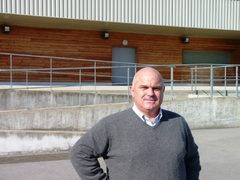- Homepage >
- Details of the press release
News detail
DUNKERQUE-PORT AND SEAFOOD
23rd february 2018

In recent years the Port of Dunkirk has demonstrated its competitiveness in the field of seafood imports. Despite its advantageous location near the major hub of Boulogne-sur-Mer (where 300,000T of seafood products are handled every year, 90% of them imported), Dunkirk was still neglected almost three years ago. Why has the situation changed so drastically?
- The maritime facilities at the Port offer competitive possibilities to importers, whatever the origin of their goods. More and more major shipping companies are using Dunkirk and are setting up here permanently.
- A Border Inspection Post was opened in October 2015, right next to the Flanders Terminal. This reduces diversions by road and so allows the inspection of 5,000 batches a year, compared with 1,000 before its inauguration.
- These two factors, together with Dunkirk's location near the Boulogne area, have encouraged importers to change discharge ports for their cargoes. Smooth transit through the Port and the presence of leading regional operators (logistics, road transport and transit) who are specialists in the sector, are additional advantages.
Comment from a client: Didier Le Tetour, Director of UNIMA, a company based in Isques
1/ Mr Le Tetour, can you describe your company and its organisation for us?
DLT: The UNIMA Group has been present in Madagascar for 30 years. It's the country's largest exporter of prawns, with 7,500 tonnes a year. We've developed environmentally-friendly models for fishing and farming. Our concern for the quality of our products has earned them the Red Label certificate, and this has enabled us to develop trade with the leading names in distribution.
We have two entry sites, Vitrolles and Isques, with most of the imports via Isques.
Before we used Dunkirk, all our containers were sent to Fos-sur-Mer to be discharged at Vitrolles before final delivery of some of them to Isques. When we saw that Dunkirk now offered great advantages, both in terms of logistics and economically, we changed our procedure and divided our imports into sectors. So the Vitrolles site is now used only for goods going to Spain and Portugal, and the containers for our Isques facility are discharged at Dunkirk and delivered directly.
2/ What are the specific constraints for your products at import, and what are the requirements on arrival?
DLT: Our products are certified Red Label and Organic, so the entry port must be able to handle them. And because they are frozen food products, a fast throughput between discharge from the ships and delivery to our warehouses is essential. Maintaining a continuous cold chain is obviously crucial. The products are also packaged in retail packs, a method which lets consumers see the product before they buy. The constraint is that frost appears on the transparent film if the cold chain is not strictly maintained.
3/ Why did you change your logistics and choose Dunkirk?
DLT: Dunkirk has made many improvements in recent years, especially in the field of services at import. Contacts with the veterinary services are excellent, and their staff are exemplary in their attentiveness to clients. Services to shipping are reliable and the transit between the different operators is fast and efficient. And the fact of completely changing our procedure, and delivering directly to Isques without discharging at Vitrolles, has led to very significant savings.
Tél : +33 (0)3 28 28 78 78 - Fax :+33 (0)3 28 28 78 77








